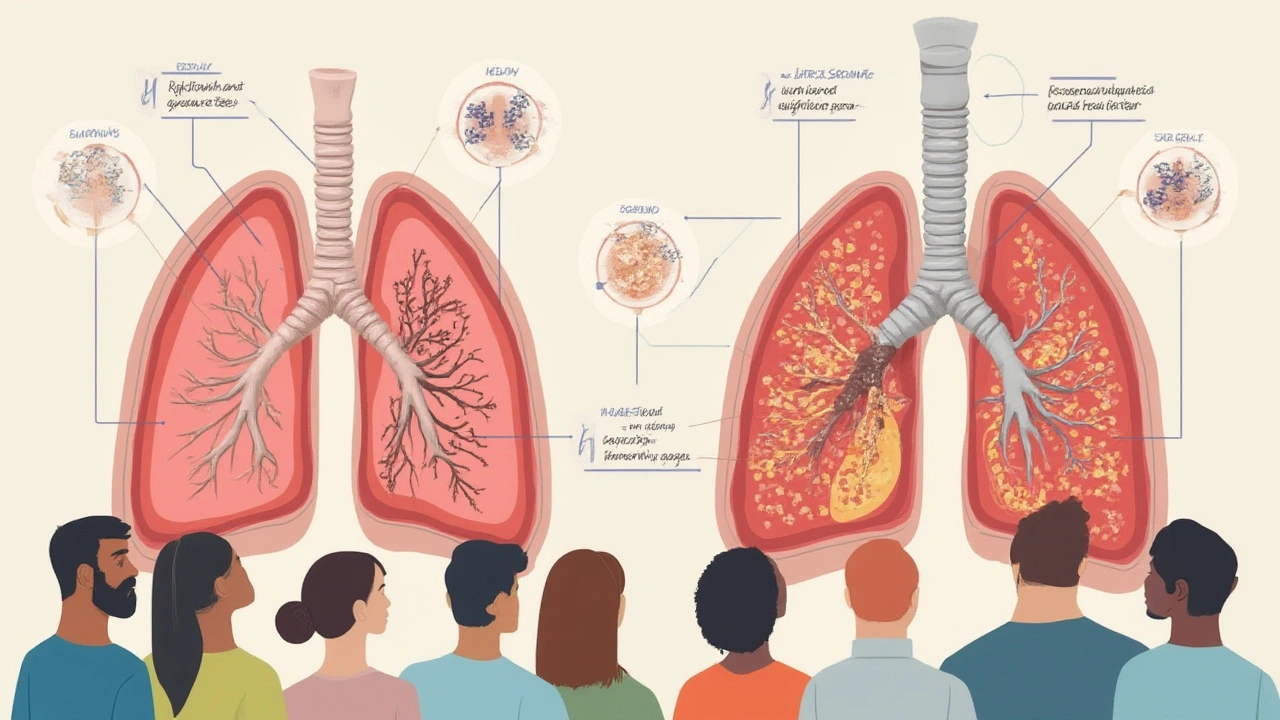Pulmonary Tuberculosis: What You Need to Know
Ever wondered why a cough that lasts weeks could be more than a cold? That’s often a sign of pulmonary tuberculosis (TB). It’s a bacterial infection that mainly hits the lungs and can spread through the air when an infected person coughs or sneezes.
TB isn’t a new problem. It’s been around for centuries, but thanks to modern medicines, most people can get better if they start treatment early. The key is spotting the signs fast and getting the right tests.
Common Symptoms to Watch For
Pay attention if you notice any of these lasting more than two weeks:
- Persistent cough, sometimes with blood
- Chest pain that gets worse when you breathe
- Unexplained weight loss
- Night sweats and fever
- Feeling unusually tired
These symptoms can look like other illnesses, so don’t assume it’s just a flu. If you have a risk factor—like close contact with someone who has TB, a weakened immune system, or living in a crowded place—head to a clinic for a check‑up.
How Doctors Diagnose Pulmonary TB
The first step is a simple chest X‑ray. It shows if there are spots or cavities in the lungs that suggest TB. After that, a sputum test is done. You’ll cough into a cup, and the lab looks for the TB bacteria under a microscope or uses a rapid molecular test.
In some cases, doctors might do a skin test (the Mantoux test) or a blood test to see if you’ve been exposed to TB before. All these tools help confirm whether you need treatment.
Once TB is confirmed, the treatment plan usually involves taking several antibiotics for at least six months. The most common combo includes isoniazid, rifampicin, ethambutol, and pyrazinamide for the first two months, then isoniazid and rifampicin for the rest.
It’s crucial to finish the whole course, even if you start feeling better. Stopping early can cause the bacteria to become resistant, making future infections harder to treat.
Side effects can happen—like mild stomach upset or skin rash—but most are manageable. Your doctor will monitor liver function and other labs to keep you safe.
While on medication, you’ll want to take the pills at the same time each day, with food if it helps your stomach. Setting a daily alarm can keep you on track.
People with TB should also think about preventing spread. Cover your mouth when you cough, ventilate rooms, and avoid close contact with newborns, the elderly, or anyone with a weak immune system until your doctor says it’s safe.
If you’re worried about TB, don’t wait. Talk to your healthcare provider, get screened, and follow the treatment plan. Early action saves lives and stops the disease from spreading.
-
Pulmonary Tuberculosis Stages: Symptoms, Progression & Recovery Explained
Explore the stages of pulmonary tuberculosis, how it impacts the lungs, warning signs to watch for, and options for treatment and recovery in plain language.
